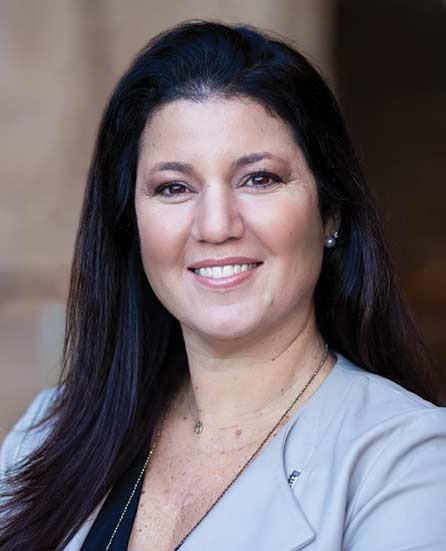 J Clin Aesthet Dermatol. 2023;16(12 Suppl 2):S12–S13
J Clin Aesthet Dermatol. 2023;16(12 Suppl 2):S12–S13
by Kasey D’Amato, PA-C, MPAP
Ms. D’Amato is President of Certified PA Consulting in Ft. Lauderdale, Florida.
FUNDING: No funding was provided for this article.
DISCLOSURES: All authors are employees of Certified PA Consulting.
The journey to become a PA or NP requires years of rigorous education, training, and dedication. However, despite the noble nature of our work, many PAs and NPs find themselves contemplating a significant career change. The decision to transition from a well-established medical career is complex and multifaceted, influenced by a myriad of personal and professional factors. I have 20 years as a medical professional myself, and 15 years consulting for others, and I can confirm that more and more PAs and NPs are pursuing career transitions. In this article, I will share the top 5 reasons medical professionals choose to embark on a new career path.
1. Burnout and Compassion Fatigue
One of the foremost reasons prompting PAs and NPs to consider a career change is the pervasive issue of burnout and compassion fatigue. The demanding nature of healthcare, coupled with long working hours and high-stakes decision-making, can lead to physical and emotional exhaustion. It is understanding that the constant exposure to human suffering, combined with the pressure to provide optimal care, takes a toll on healthcare workers.
Most PAs and NPs enter the medical field driven by a passion for helping others. However, the relentless demands of the job can erode that passion and lead to feeling emotionally drained and struggling to maintain the empathy required for patient care. When that happens, a change is necessary for the well-being of the PA or NP.
Once you recognize the signs of burnout, medical professionals often seek alternative career paths that allow for a better work-life balance, reduced stress, and a renewed sense of purpose. Some PAs and NPs transition to roles in healthcare administration, research, or teaching, finding fulfillment in contributing to the medical field in a different capacity.
2. Desire for Progress and Broadened Skill Sets
While the medical field offers a variety of specialties, some professionals desire to broaden their skill sets and explore diverse facets of their interests. Sometimes, we can feel confined within the boundaries of our specialty or facility. Transitioning to a different career allows PAs and NPs the ability to leverage medical knowledge while acquiring new skills.
Some examples are PAs and NPs who simply change jobs or specialties and others pursue careers in pharmaceuticals, medical writing, or medical chart review as a few examples of where they can apply their clinical expertise in novel ways.
3. Evolving Technology and New Healthcare Trends
Healthcare is continually impacted by technological advancements and evolving trends. Medical professionals who are tech savvy love to stay at the forefront of innovation and may find themselves drawn to careers that align with emerging technologies.
As healthcare embraces digital health, telemedicine, and data-driven solutions, PAs and NPs may seek opportunities outside traditional clinical roles to contribute to the integration of technology into patient care, healthcare management, bioinformatics, and research to name a few.
4. Lifestyle and Family Considerations
The demanding lifestyle of PAs and NPs often leads individuals to reassess their priorities, especially in the context of family and personal life. The long hours, frequent on-call duties, and the unpredictability of schedule can strain personal relationships and hinder work-life balance.
Many PAs and NPs want more flexibility and control over their work schedule and want to be present for their children and families. Transitioning to a career that allows for a better work-life balance to prioritize family is a common driver for PAs and NPs to make a career change. PAs and NPs seeking enhanced work-life balance may find fulfillment in careers such as healthcare consulting, medical writing, medical legal expert, pharmaceutical sales, health coaching, and various ecommerce businesses, where flexible home based schedules are common and more conducive for work-life balance.
5. Economic Considerations and Job Satisfaction
Economic factors also play a significant role in the decision-making process of PAs and NPs contemplating a career change. While PAs and NPs are paid well in most instances, some individuals find that pursuing alternative job opportunities or even alternative career paths can offer a more lucrative or financially stable path compared to their current position.
Job satisfaction and workplace respect is another critical factor influencing career transitions. The desire for a more fulfilling professional life with more workplace respect, whether through entrepreneurship, leadership roles, or non-clinical positions, motivates some PAs and NPs to explore diverse career options beyond traditional clinical practice.
Conclusion
The decision for PAs and NPs to pursue a career change is a multifaceted process influenced by burnout, a desire for progress and expanded skill sets, technological trends, lifestyle considerations, and/or economic and respect factors. While the journey from clinical practice to alternative careers may be appear challenging, it is not as complicated as it seems. There are many opportunities that allow PAs and NPs to contribute to healthcare in innovative ways, and there are opportunities outside of healthcare too. As the healthcare landscape continues to evolve, so too will the paths available to those PAs and NPs seeking fulfillment and growth outside of their current roles and outside the confines of traditional PA/NP medical clinical role.

